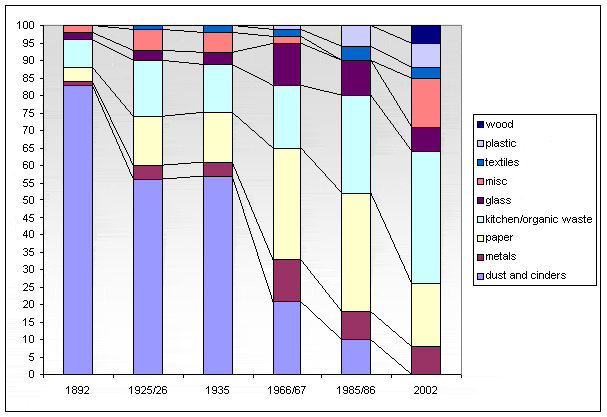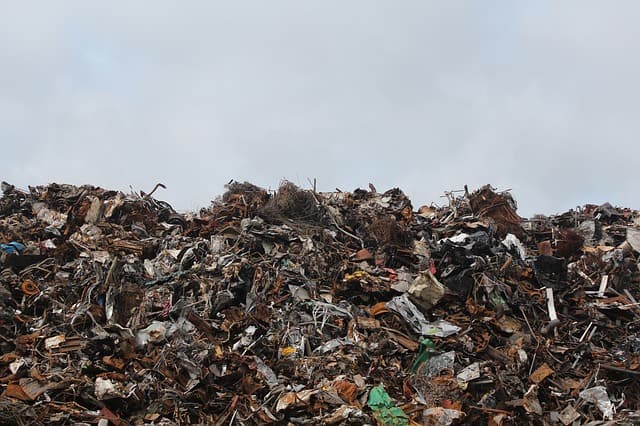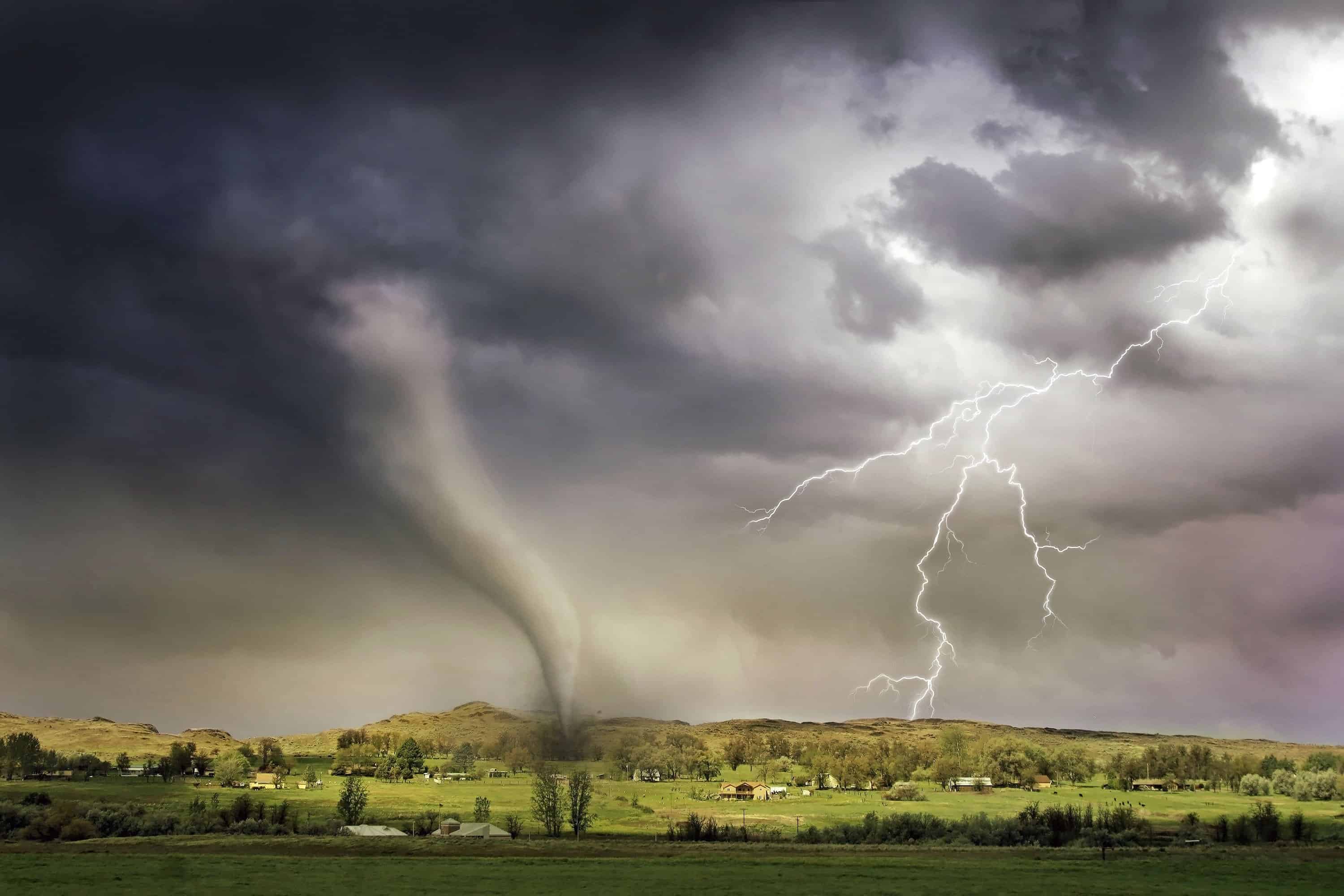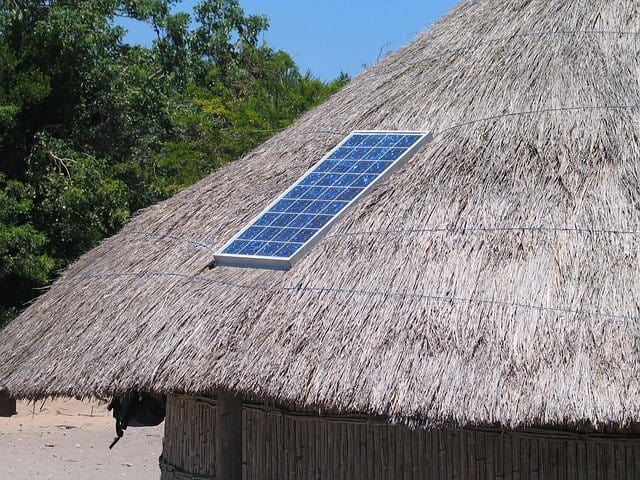Soil is a natural resource and the thin layer of inorganic and organic matters that cover the Earth’s surface. Many components make up the soil – Soil air (25 percent), Organic matter (5 percent), Soil water (25 percent), Organic mineral matter (45 percent). In this article we discuss how to actually control soil pollution.
The soil is a living ecosystem which consists of different kinds of organisms – larger and microscopic ones. All these are in charge of changing decomposing matter and minerals into nutrients in which the plants make use of. The microscopic organisms consist of viruses, bacteria, protozoa, algae, and fungi while the larger ones consist of bugs, earthworms, and mammals like rabbits, mice, and moles. This makes soil one of the most important natural resources.
But most of us are careless, we throw away our shopping bags, wrappers, polythene bags, just anywhere. Our methods of disposing of our waste are disgusting. Most of us pollute the soil, thereby destroying the quality of the soil.
We must try to value our mother nature. We can save our valuable soil by making sure we are careful of how our earth is being treated. Dispose of your waste properly and carefully especially polythene bags, polythene wrappers, and shopping bags.
This kind of trashes can’t just be thrown away; if done, it stays there in the soil for years or stays in the water for a long time if dumped in an ocean. If you decide to burn it, a foul smell is emitted thereby causing air pollution which causes a lot of harm to plants and animals.
The chart below reveals the number of several types of trash or waste thrown into the soil years ago.

Source – Google picture
You will observe the rise in the number of the paper, metal waste, and plastic. This is due to the fact that these types of waste are the major waste in our everyday life.
What is Soil Pollution?
This can be defined as the increase of chemicals, persistent poisonous compounds, disease-causing agents, salts or radioactive materials, in the soil which have severe results on animal health and plant growth.
In this present day, soil pollution remains one of the greatest issues present in our world and also part of the most sensitive issues in our environment. Soil pollution can be caused by the penetration of dangerous insecticides and pesticides.
Though this is useful for the crops it also causes the deterioration of the quality of the soil. Pesticides and insecticides are not the only cause of soil pollution; we have got a whole lot more.
Causes Of Soil Pollution:
-
Waste disposal:
Sewage and customer waste remains one of the major causes of soil pollution. A great number of waste products like metals, damaged electronics, diapers, and plastics, are dumped into landfills directly.
The sewer end products are sent to the landfills and also chemicals are thrown there. This piles up and produces highly poisonous materials in the landfill due to the mixture of the chemicals and the waste toxins. This eventually gets into the land and leads to the pollution of the soil.
-
Industrial activities:
Manufacturing and industrial activities are known to be the major cause of the pollution of the soil in the past years. Mainly, as a result of the rate and amount of producing processes that increased quickly due to the higher demand of the consumers
Industries make use of different raw materials that create a lot of toxic end products and chemical residues. The leftovers which include heavy metals, chemical residues, petroleum byproducts, liquid contaminant wastes and poisonous material parts always find its way to the landfills one way or the other or might get buried in the soil.
As a result, these toxic and contaminant wastes from the industries stay on the surface of the soil for many years, thereby making it unfit for any other use.
-
Oil leakage:
Underground tanks used to stored petroleum liquids may leak at times. Also, during the transportation of these products, oil spillage might occur accidentally. All these occur mostly in gas stations and can result in the deterioration of the quality of the soil which makes it unhealthy for cultivation.
-
Agricultural activities:
Since the aim of every farmer is to attain food security and improve the productivity of his crop. This brings about the utilization of modern chemical fertilizer, herbicides, and pesticides. These truly help them to achieve their goal but the negative effect of these chemicals is that they consist of unnatural substances which make them difficult to decompose.
Therefore, they penetrate the soil after mixing with water and they steadily reduce the biological activities fertility of the soil. Also, they destroy the composition of the soil, thereby making it vulnerable to erosion.
-
Natural Causes:
Some soil pollutions are caused naturally. For example, production of minerals naturally, building up of salt compounds within the soil, Volcano eruption and so on.
-
Mining:
The extraction of mineral ores and materials from below the earth surface is referred to as Mining. Mining activities expose the land to heavy metals and chemical contaminants that destroy the quality of the soil. For instance, the mining of coal releases mercury impurities into the soil. Frequent mining destroys the topsoil and makes the soil vulnerable to erosion.
-
Acid Rain:
Acid rain is produced when air pollutants react chemically with oxygen and water to form weak sulfuric and nitric acids, this later falls back to the soil as precipitation. When on the land, it breaks into the soil and changes the soil biology, chemistry and structure. When this happens, the PH of the soil gets reversed, the enzymes for the soil microbes are denatured, and the important minerals and nutrients are leached away.
-
Underground Sewers and Underground Pipelines:
The sewer system that is underground can get crack and start to leak. Also, underground pipelines tend to crack or burst due to natural underground rock actions or rusting. When this occurs, the toxic contents and chemical are released directly into the soil. This, in turn, causes pollution. Leaking sewers, as
-
Construction activities:
In the cities, chemicals such as lead paints and wastes handled at sites can cause soil pollution. Construction activities are regarded as the pollutants of the soil in most cities due to their presence in nearly all the areas in the cities.
Soil pollution affects every part of our environment and also all organisms from insects to human beings. Below are some of the effects of soil pollution
Effects of soil pollution:
Effects on Ecosystem:
When the soil gets polluted, it will surely have negative effects on the ecosystem. Some of which are discussed below:
- Imbalance in the ecosystem.
- The chemical properties in the soil changes permanently.
- Metabolism change of the endemic microorganisms which can result in the cutting off of the primary food chain. This will surely affect every organism (humans inclusive) since all organisms are interrelated.
- Lack of health for all consumers.
Agricultural effects:
Everything we eat and all we consume to stay alive is gotten from agriculture, wherein, a healthy agriculture is based on soil. When the soil becomes polluted, plants will no longer be able to adapt to the new changes. Also, fungi and other microorganism living in the soil won’t be able to bind the soil because of the chemical changes.
Below are some other negative effects of soil pollution on agriculture.
- Nutrient loss
- Lands become less fertile
- The decrease in crop yield
- Soil erosion
- Nitrogen fixation get reduced
- Barren Lands
Effects on humans:
Since humans depend on land for food, soil pollution is surely going affect us and the soil pollutants will also be transferred to us. The bio buildup of toxins also takes place in our bodies and can result to chronic poisoning, developmental and birth defects, Reproductive health, malnutrition, neurologic effects, cell mutations, cancers and other deadly diseases.
Air pollution:
Harmful gases and poisonous dust from landfills together with the bad odour contaminate the air and cause negative effects to those who stay close to them.
How to Actually Control Soil Pollution?
Even though the situation of soil pollution is somehow bad presently, but before it gets worse, we can still control it. Mentioned below are some measures we can take to control soil pollution.
- Dumping of unwanted materials properly: Excess waste from animals and unwanted materials from man cause a disposal problem. Presently, the most commonly practised technique is open dumping and this causes soil pollution. In other to avoid this, controlled tipping should be observed and waste should be disposed of properly.
- Planting of many trees, especially on barren slopes will help to prevent Soil erosion and absorb harmful chemicals.
- Use of Bio fungicides and pesticides: Apart from making use of biofertilizers, farmers should make use of bio fungicides and pesticides which are also known as herbicides so as to avoid soil pollution. Though they might react longer they do not have any negative effect on the soil. Making use of manure as both pesticides and fertilizers remain the best because they have far less negative effects than the chemical ones.
- Strip cropping and contour cultivation should be practised rather than shifting cultivation
- Good hygienic situation: Individuals ought to be trained concerning sanitary behaviour. For example, toilets should be equipped with effective and quick disposal methods.
-
Animal waste should be used instead of chemical manures; this will help prevent soil erosion.
- Make use of Biofertilizers: To increase crop productivity and agricultural yield, most of the farmers make use of chemical fertilizers. Certainly, the yield did increase, but at the expense of losing the soil’s fertility. And to return this soil fertility to its original state will take a long time. To increase this quickly, farmers should make use of biofertilizers. These fertilizers contain the microorganisms which help to increase soil fertility.
- Proper waste management processes should be used for industrial waste. Industrial waste should be treated biologically so as to the waste the less dangerous. This is the foremost step for effectively managing industrial waste and decreasing the pollution of the soil.
- Public awareness: Formal and informal public awareness should be done to enlighten people on health risks through educational institutions, mass media, and voluntary agencies.
- Thermal remediation: This is done to increase the subsurface of the soil’s temperature, thereby, making it so high that the dangerous chemical substances are removed from the soil through the extraction of vapour.
- Go for organic products and biodegradable materials: This is one of the best ways to reduce soil pollution. Though are more expensive than the chemically grown products. However, choosing and using organic products or biodegradable materials will bring about an increase in organic production, which in turn, help to control the pollution of the soil.
- Reuse and Recycling of wastes: To reduce the pollution of the soil, wastes such as metals, paper, petroleum products, plastics, industrial effluents, glasses, and organics, should be reused and recycled.
Also, some of these wastes such as plastic, glass take a longer time to disintegrate and this remains a major cause of soil pollution. So recycling of such wastes will help to reduce our landfills and drastically reduce the pollution of the soil.
- Uncover contaminated soil: Every soil that is polluted should be unearthed and taken far from residential areas so as to avoid health issues.
- Banning toxic chemical substances: Chemicals and pesticides such as BHC, DDT, and so on which can be dangerous to animals and plants should be banned. Also, a ban should be imposed on radioactive wastes not disposed properly and nuclear explosions.
Every living thing is dependent on land (soil) for their survival, so there is a need to control its pollution. Though, some of us might not realize that we are also contributing to soil pollution. But, it is vital for all of us to understand how to prevent this pollution, so that every small action done by each of us will go far in defending our soil, which in turn, makes our earth safe.
Now you must have learnt how to actually control soil pollution and along with many other details.
Also, here are a few hand-picked articles for you to read next:
- What Are The Effects Of Volcanoes On The Environment?
- What Does Nature Give Us?
- How Are Mountains Useful To Us?
- What Are The Uses Of Rivers?
- Why Is Renewable Energy Important For The Future?
- The Real Importance of Trees In Our Life
- What Is The Actual Importance Of Recycling?
- How To Actually Control Noise Pollution?
- The Real Importance Of Green Revolution | Definition, Benefits, Issues




